As S Iswaran exited the State Courts on the morning of Jan. 18, the hive of reporters and photographers buzzed to life and swarmed the man who has now made history as the first Cabinet minister to be charged with a criminal offence in Singapore.
Amid the flurry of camera clicks and prodding phones/mics, a reporter asked if Iswaran was going to resign from his position as Minister for Transport.
He stopped, turned, and said that he would be releasing a statement later that day.
Little did those present know that the Iswaran before them was no longer transport minister effective the day before; a nearly three-decade-long political career bookended by a scandal that will be immortalised as a liner on Wikipedia.
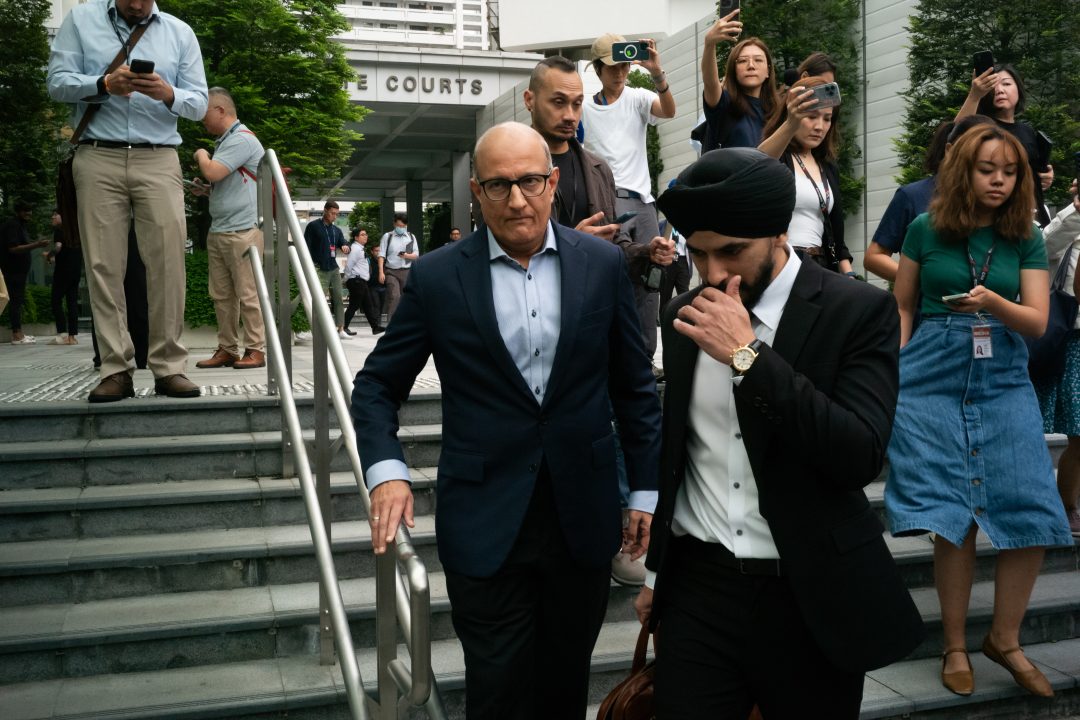 Photo by Andrew Koay.
Photo by Andrew Koay.
Early working relationship with Ong Beng Seng
Iswaran had a varied career in the public and private sectors (yes, in that order) that spanned a decade before he entered politics.
Armed with a Masters in Public Administration courtesy of Harvard, Iswaran joined the Singapore Administrative Service in 1987.
He was posted to various ministries, the National Trade Union Congress, and the Singapore Indian Development Association where he served as the organisation's first CEO.
Then, Iswaran moved to the private sector in 1996, joining Singapore Technologies (which is better known as ST Engineering) before hopping over to Temasek Holdings where he stayed until 2006.
Iswaran had a working relationship with Ong Beng Seng, the tycoon at the centre of his current graft case, during his time at Temasek.
In 2003, Ong partnered Temasek Holdings for a high profile takeover of NatSteel, Singapore's largest steel producer. Bloomberg reported that Ong's company, 98 Holdings, listed Iswaran as a director on behalf of Temasek.
An MP for over a quarter of a century
Concurrent to his private sector stints, Iswaran was also a Member of Parliament (MP).
Just like the boybands that characterised much of the 90s, Iswaran made his political debut in the 1997 General Election with a band -- of brothers that is.
The PAP fielded a team of four men to contest in the newly-created West Coast GRC in 1997.
Iswaran was the youngest of the four, joining the likes of Minister for National Development Lim Hng Kiang, former Minister of State in the Prime Minister's Office Wan Soon Bee, and former Minister of State Bernard Chen, who had served in three other GRCs before coming to West Coast.
The PAP team stormed to victory in the General Election with 70.14 per cent of the votes, higher than the party share of 64.98 per cent.
For what might seem like forever for West Coast GRC constituents, West Coast GRC has been a PAP stronghold which has grown alongside Iswaran as he went from fresh-faced MP to veteran political office holder to anchor minister over the years.
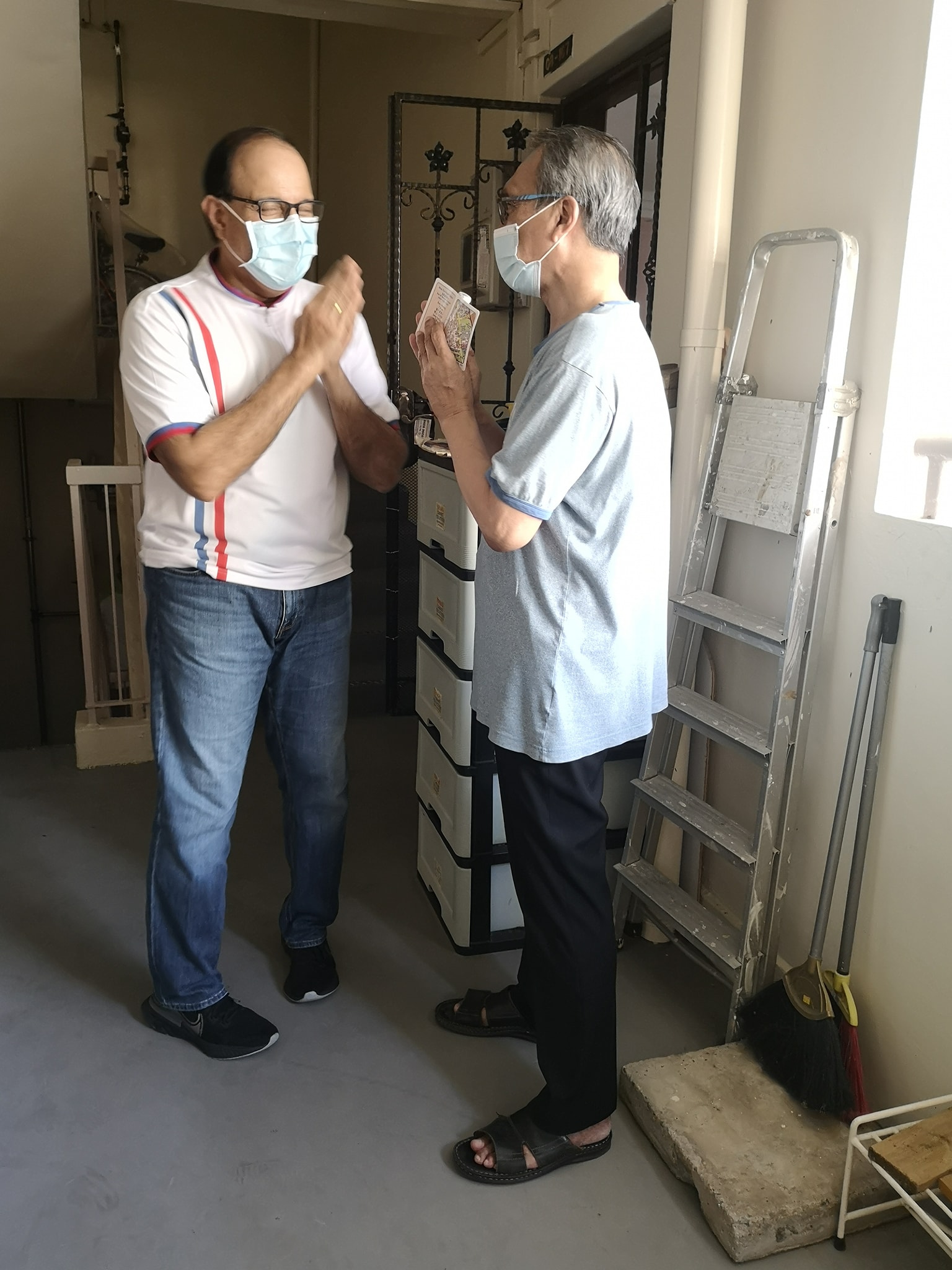 Iswaran on a house visit in West Coast GRC. Photo from S Iswaran/Facebook.
Iswaran on a house visit in West Coast GRC. Photo from S Iswaran/Facebook.
According to his bio (which has now been removed) on the People's Action Party website, Iswaran and his team remodelled West Coast "to meet the changing needs of senior citizens and families".
Other highlights from his work as an MP included launching welfare and bursary programmes, and promoting sustainability by encouraging his constituents to use car-sharing schemes and adopt the use of electric vehicles.
As an MP, Iswaran also served on several Government Parliamentary Committees. From September 2004 to June 2006, Iswaran served as Deputy Speaker of Parliament.
The men who brought F1 to Singapore
Following the 2006 General Election, Iswaran became a Senior Minister of State at the Ministry of Trade and Industry and took on an additional appointment as Senior Minister of State at the Ministry of Education in 2009.
During his stint at MTI, he worked closely with Ong to bring the F1 Grand Prix to Singapore.
The world famous racing event would bring the city state "attention and buzz", Iswaran said to Parliament.
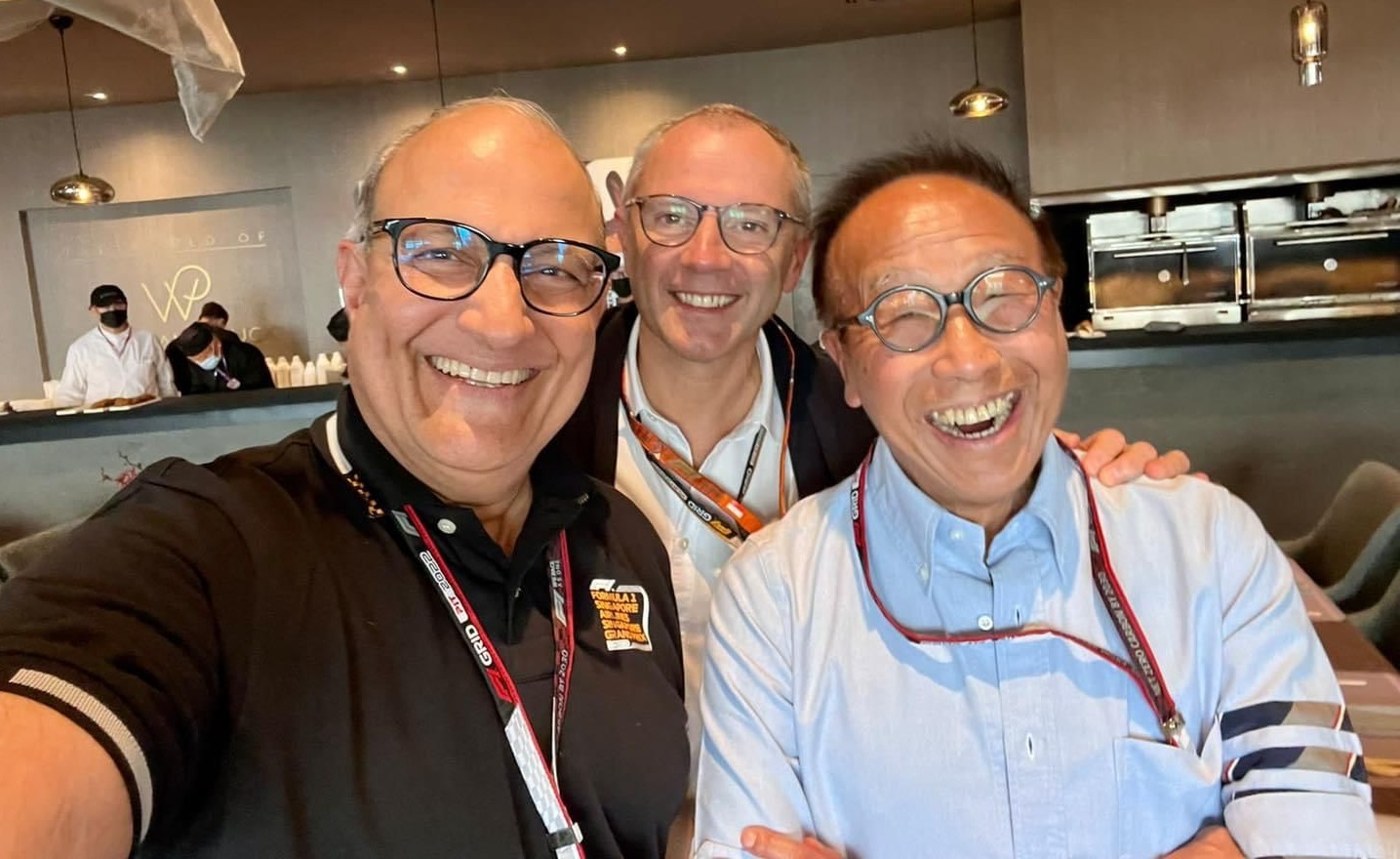 Iswaran (L), Ong Beng Seng (R), and Stefano Domenicali (C) the CEO of Formula One. Image via YouTube.
Iswaran (L), Ong Beng Seng (R), and Stefano Domenicali (C) the CEO of Formula One. Image via YouTube.
During a press conference for the Formula 1 Singapore Grand Prix on May 11, 2007, Iswaran highlighted the economic benefits and positive spillovers from a Grand Prix event:
"F1 will give a strong boost to our tourism sector.
It is expected to generate incremental tourism receipts of about S$100 million a year. Hotels, night spots, restaurants, retailers, airlines, taxi drivers, and many other groups will benefit.
The hive of activity surrounding the race will create opportunities for individuals and companies alike.
There will be broader economic spin-offs as well.
Our growing private wealth management industry, strong contingent of MNCs and local companies, and diverse retail and entertainment establishments can all take advantage of the event to derive benefits for their clients and their business."
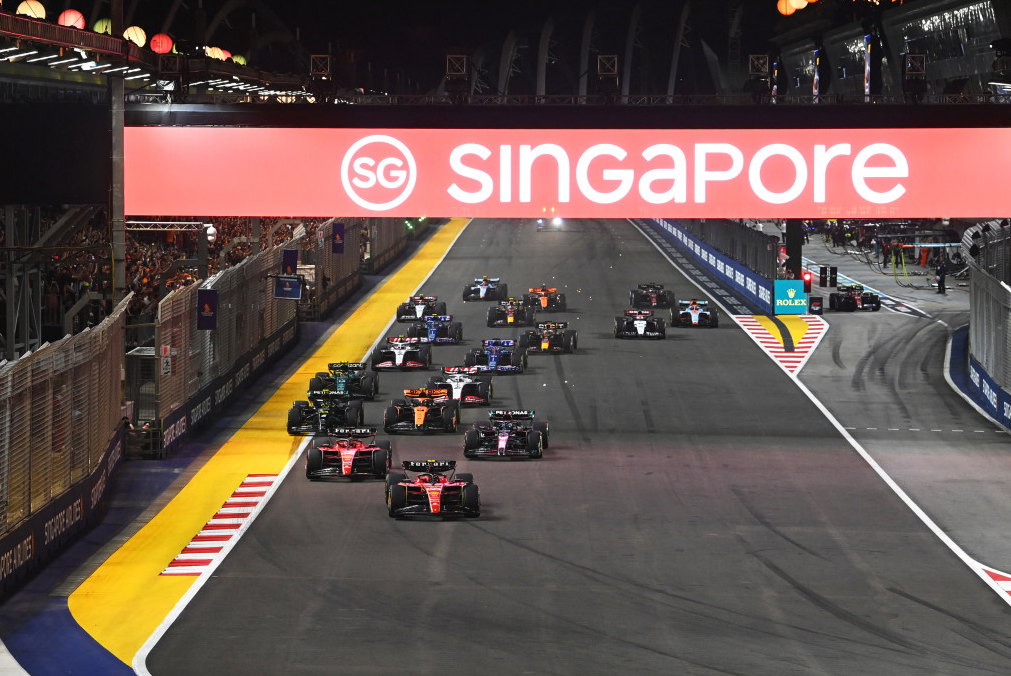 Photo from Singapore F1.
Photo from Singapore F1.
Ong benefits from staging an F1 Grand Prix in Singapore too.
Reuters pointed out in 2007 that a race in the city centre would benefit his "portfolio of hotels and boutiques along Singapore's Orchard Road shopping belt" thanks to the surge in tourists and F1 fans.
Ong did secure the rights to host an F1 race in Singapore, under his company Singapore GP Pte Ltd.
The first F1 Singapore Grand Prix night race hit the streets (quite literally) of Marina Bay on Sep. 26, 2008.
Save for a two-year hiatus from 2020 to 2021, the F1 Singapore Grand Prix night race has been an annual affair since 2008, which provided many opportunities for Iswaran and Ong to work together.
Even after Iswaran became Minister for Transport, he continued to oversee the talks with F1 and Singapore Grand Prix in 2021 because he was familiar with the parties and the issues.
Cabinet Minister
Iswaran joined PM Lee's Cabinet as a full Minister after the 2011 General Election, taking on three appointments: Minister in the Prime Minister's Office, Second Minister for Home Affairs, and Second Minister for Trade and Industry.
Over the years, he took on various portfolios with Cabinet reshuffles.
He held ministerial positions in the Ministry of Communications and Information, the Ministry of Home Affairs, and the Ministry of Education.
The 2021 Cabinet reshuffle saw PM Lee praise Iswaran for his work as Minister for Communications and Information:
"[Iswaran] has significantly improved government’s public communications and sensemaking capabilities, and helped us understand and respond to citizens’ views and concerns.
He has managed major upgrades to our tech infrastructure, e.g. the award of tenders and rollout of the new 5G networks."
In a way, it's like having a good performance review. But instead of getting a pay raise, you get assigned harder work.
In the Cabinet, that would be the Transport portfolio.
From trains that don't move to COE prices that move upwards too fast -- this portfolio has a variety of flashpoints that can quickly turn into a political hot potato.
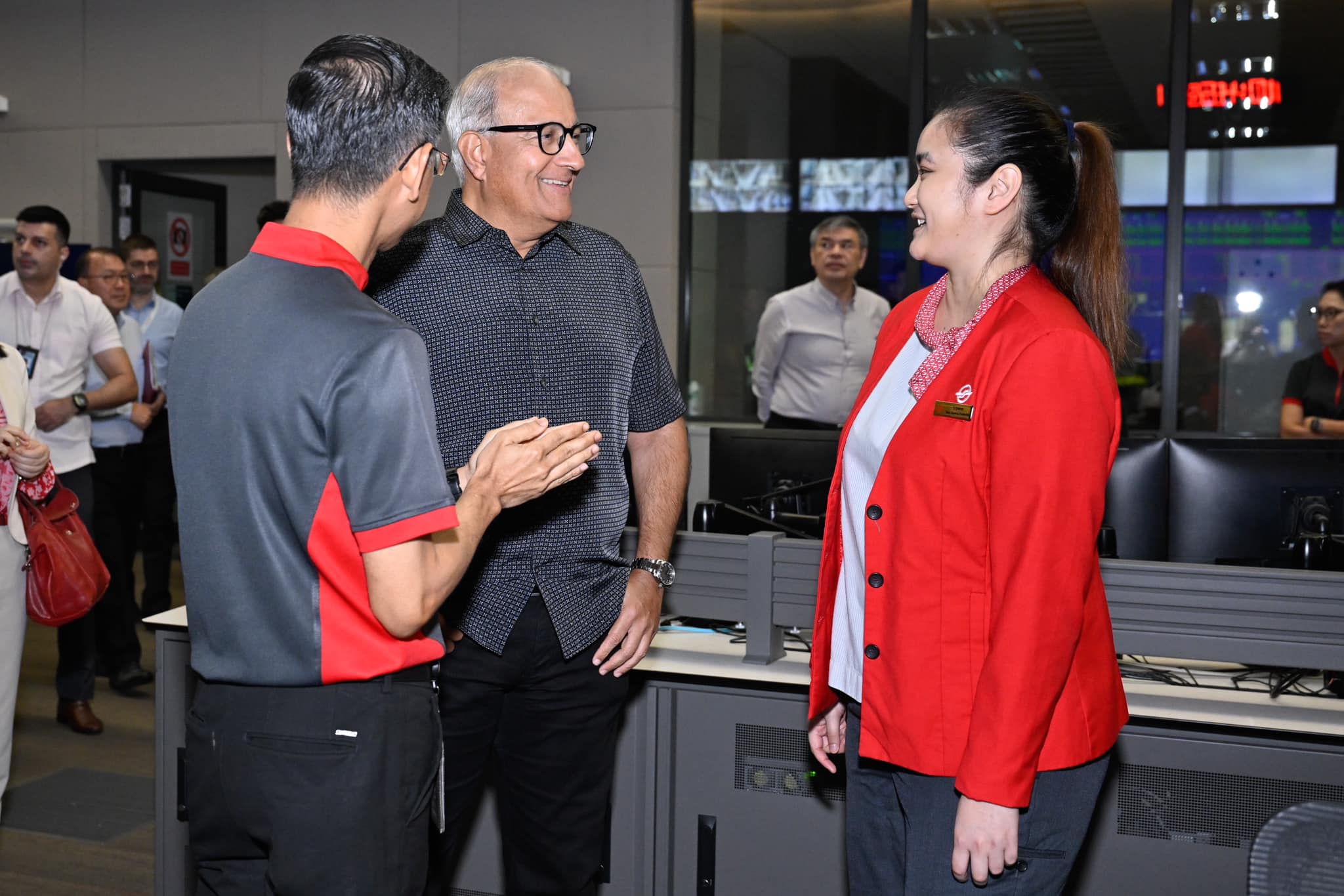 Iswaran on a visit to SMRT's Mandai Depot when he was still transport minister. Photo from S Iswaran/Facebook.
Iswaran on a visit to SMRT's Mandai Depot when he was still transport minister. Photo from S Iswaran/Facebook.
In addition, Iswaran became Minister for Transport at a time when Singapore was emerging from the pandemic.
His priorities included reviving the aviation sector so that Changi Airport could regain its status as an international hub.
By March 2023, passenger traffic volumes and flights at Changi Airport had reached 80 per cent of pre-Covid-19 levels. The local aviation workforce has also been on a rebound, hitting 90 per cent of pre-pandemic levels in March last year.
Iswaran told Parliament then that passenger traffic at Changi will hit pre-Covid-19 levels by 2024 latest.
Another thing he revived: The Formula 1 Singapore Grand Prix, which will continue to run until 2028, though with a shadow of this graft case hanging over it now.
Some have pointed out that "valuable items" that Iswaran allegedly obtained from Ong -- tickets to football matches and musicals, and business class flights -- did not seem out of the ordinary; these are commonly racked up as entertainment expenses.If anything, this case illustrates PM Lee's reminder to PAP members in November last year: "If you wear white, you must be white."
It's a high standard of incorruptibility, but when backed with the party's rigorous enforcement of discipline, it has made Singapore "one of the cleanest, least corrupt countries", said the Prime Minister.
"This commitment is absolutely non-negotiable."
"The PAP government will continue to do everything we can to uphold the highest standards of integrity, incorruptibility and propriety. That's how we maintain the trust that Singaporeans have placed in us", Deputy Prime Minister Lawrence Wong told the media in a doorstop on Jan. 18.
"There can be no compromise, no relaxation, no fudging of this — no matter the political price," Wong said. "This is part of our DNA."
Cover photo: Andrew Koay.
If you like what you read, follow us on Facebook, Instagram, Twitter and Telegram to get the latest updates.



